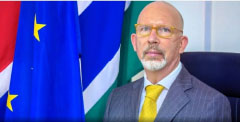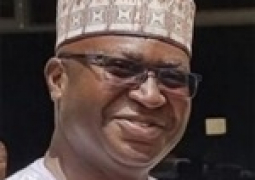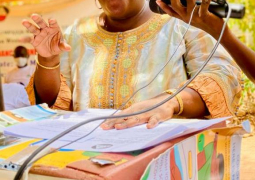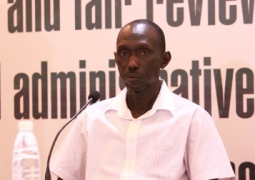
The diplomat said the government indeed entered into the arrangement according to which it has to readmit certain number of Gambian nationals irregularly present in EU countries every month.
“Enhancing cooperation on return and readmission is part of the comprehensive EU migration policy. Our policy has been designed to prevent irregular migration flowswhile improving return and reintegration programmes. A readmission agreement was negotiated and concluded with the Gambia back in 2018. Regrettably, it has never been fully implemented by The Gambia,” Ambassador Corrado Pampaloni, said in an exclusive interview at his office.
The UN Department of Economic and Social Affairs (UNDESA) estimated that there are around 118,485 Gambian nationals making up the Diaspora population in 2019, of which 71,987 or 61% are living in Europe. The Government of The Gambia stated in its National Development Plan (NDP 2018-21) that the diaspora population can be as high as 200,000, taking into account undocumented irregular migrants and the multigenerational diaspora.
“Looking at statistics, the number of Gambians who do not have the right to stay in the European Union as a whole amounts to more than 12,000. Going by the readmission arrangement reached between the EU and Banjul in 2018, only a few hundred of those would have been repatriated under the returns and readmission arrangements,” the diplomat said as pressure further mounts on Banjul.
The ambassador gave a rare exclusive to this reporter to shed light on realities of the return and readmission arrangements made between two countries since 2018: “There is a big discrepancy between the number of return decisions issued to Gambians and the number of those effectively returned, resulting in a return rate of 11% (2019). For two-thirds of the Member States that have issued almost half of the return decisions, identification processes (including through interviews) are not conducted satisfactorily and travel documents are not issued timely.”
However, at least up to December no returns are taking place under the agreed arrangements, according to the ambassador.
“We will see what happens afterwards. Now, as you know the renewed EU Visa Code is linked to the cooperation with EU partner countries in the area of the return and readmission of their nationals who do not have the right to stay in the EU. Thus, based on its own assessment, the European Commission may propose stricter or more favourable conditions for the processing of visa applications”.
The EU and The Gambia have very solid diplomatic relations since 2017. Its diplomatic mission to The Gambia was upgraded from an antenna having a Charge de Affairs as head of the mission to a full Embassy having an Ambassador in 2015. In the former format, the mission was overseen by the EU Embassy in Dakar, and had limited staff and diplomatic functions.
The European bloc is one of the great supporters of the democratic change and of the transitional justice process that started in 2018. It co-chaired with The Gambia the International Conference for The Gambia held in Brussels in 2018, where 1.45 billion Euros have been pledged to help the effort to the democratic transition.
Brussels said it has upheld its part of the pledges – those in the form of grants – and most of the pledges were in the form of grants, which The Gambia needs to qualify for.
For The Gambia, the Ambassador said migration is a very sensitive issue that is being discussed in the country – including the right of the person to have a new life. The Gambia government discusses about development and about many other issues in the context of the migration cooperation with the EU.
“But what strikes me is their claim on the sovereign right of The Gambia not to authorise landings for charter flights bringing Gambian returnees. This is something felt very strongly here in Banjul, and rightly so. But what I have seen is that there is never been shown empathy for the other side that has the same problems,” he said, arguing that Europe too is confronting sensitivities and issues from its citizens that are affected by the presence of undocumented migrants in Europe.
“We have sovereignty also in Europe and we have the right not to accept migrants who have exhausted the avenues for obtaining the right to stay. As you know, we accept a lot of migrants in Europe. Also, as of 2020, nearly 37 million people were born outside the EU (8.3% of all EU inhabitants). So it is not fair to say, including The Gambia, that Europe is closing the borders, etc. Europe just wants to apply its own rules, just as The Gambia does on its own territory,” the Ambassador said.
There are clearly defined eligibility criteria for migrants and asylum seekers in Europe: “When I speak with my partners, I try to make it clear that there are Gambians who have acquired the right to remain in Europe and we need to protect also their status.
Between 2014 and 2016, The Gambia was designated as the third biggest source of irregular migrants to Europe. Until 2016, Europe was receiving up to 16,000 Gambians per year, in addition to others who already lived there. “Many of these Gambians are still in Europe,” Ambassador said.
At present in Europe, political leaders are making efforts to demonstrate to their citizens that the procedures for migration are based on the law, which clearly set a line between those that are entitled to stay from those who are not.
“In this political context, the emphasis is on guaranteeing to those Gambians that have the right to stay, to remain. The basis for deciding this is to follow the rule of law, which implies that once the law said you have exhausted your right to stay in Europe, you got to leave,” he further explained.
Ambassador Pampaloni emphasised that “the EU remains determined to support the ownership of the government of The Gambia when it comes to reintegration processes in the country.
It has consistently reaffirmed it will to find mutually agreeable solutions and to continue supporting The Gambia in the field of migration, including on return and readmission by various means.”





